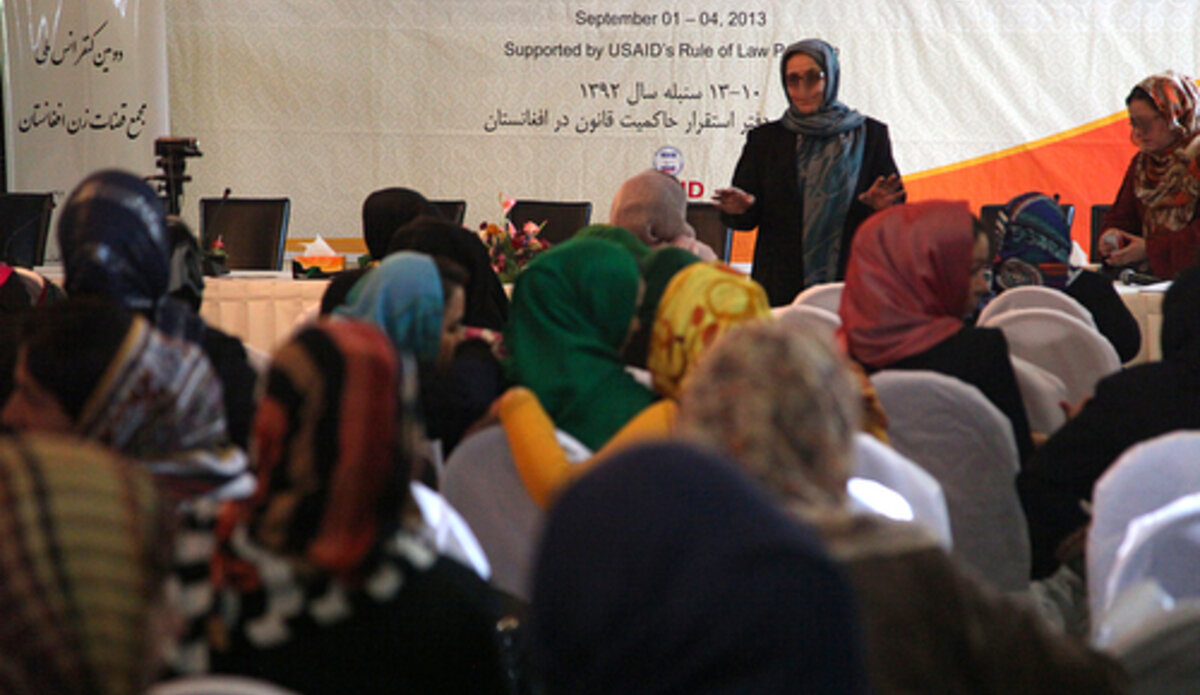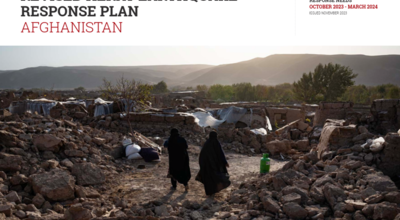Afghanistan’s female judges discuss challenges in justice delivery
KABUL - More than 180 female judges from across Afghanistan discussed problems they face while going about their duties, at a four-day annual conference of an umbrella body of female judges which concluded in the capital, Kabul, today.
The head of the Afghan Women Judges Association (AWJA), Anisa Rasouli, said the main objectives of the conference were to discuss ways to ensure justice to those coming to the courts for their rights and also to improve capacity of female judges, who currently make up some 10 per cent of the total number of Afghan judges, up from three per cent five years ago.
The conference also discussed ways to ensure “access to resources for the legal rights of women judges,” Ms. Rasouli added.
Afghan female judges face a range of obstacles, including being targeted by anti-government elements and social stigma, both of which have helped limit their presence to just five of Afghanistan’s provinces: Kabul, Balkh, Herat, Takhar and Baghlan.
Ten of the female judges are based in Balkh, five in Herat, two each in Takhar and Baghlan, with the rest based in Kabul.
“Unfortunately, we do not have any women judge in other provinces due to security, economic and customary reasons,” said Ms. Rasouli, noting that the presence of female judges in all courtrooms “highly essential.”
“If a woman judge is present in a province, a woman complainant can share her problems with full confidence,” she continued. “She may not feel easy to share them with a man judge.”
On the security front, anti-government elements have targeted the Afghan legal sector. The latest report of the United Nations Assistance Mission in Afghanistan (UNAMA) on the protection of civilians noted that four such attacks against courthouses and judicial and prosecution staff, carried out during the first six months of this year, killed 57 and injured 145, including judges, prosecutors, legal and clerical staff.
A senior judicial officer at UNAMA, Damian Klauss, said that despite the challenges involved, recruiting female judges should continue to be a priority for Afghanistan.
“It is important that courts are seen to be fair and impartial if they are to be considered legitimate, and a judiciary that accurately reflects the population they serve plays a vital role in that regard,” said Mr. Klauss. “Afghanistan does not lack for talented women lawyers, and the country would benefit immensely by their service in the judiciary.”
The AWJA was established in July 2012 in the presence of President Hamid Karzai and the then-Chief Justice, Abdul Salam Azimi. The Association has 186 members and has an elected leadership council, comprising a chairperson, secretary and heads of three sub-committees.
On the second day of the conference, on Monday, some of the female judges visited autopsy centres, women’s shelters, child reform and training centres and a women’s jail. They shared their impressions of the visits with other participants of the conference, and said they will also share their thoughts with “higher authorities.”
Addressing the opening of the conference on Sunday, the acting head of Afghanistan’s Supreme Court, Bahauddin Baha, stated that “a lot of women in remote areas of the country do not have access to their rights due to lack of adequate number of women judges.
“The presence of women judges can help overcome such challenges,” said Mr. Baha, adding that the recruitment of female judges in Afghanistan’s judicial system is still higher than “in some countries in the region” and the recruitment of more female judges is a priority.
The AWJA has called for at least one seat in the highest judicial organ of the country, the High Council of the Supreme Court, to be reserved for women. Ms. Rasouli said that the lack of a female member of the High Council of the Supreme Court, which has not had a woman member since its establishment 13 years ago, is “a key issue” for the Association.
Meanwhile, the secretary of the Association, Shehnaz Ismailkhel, said the group has sent several judges to receive training on the issues of gender, violence against women and legal interpretation.
 UN
UN







